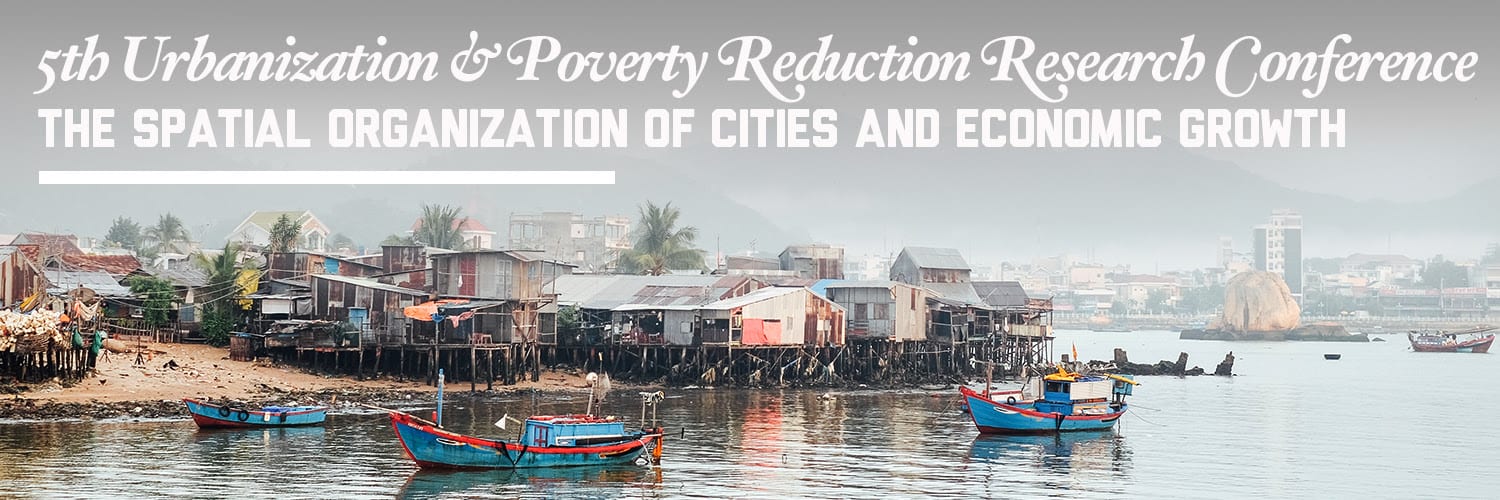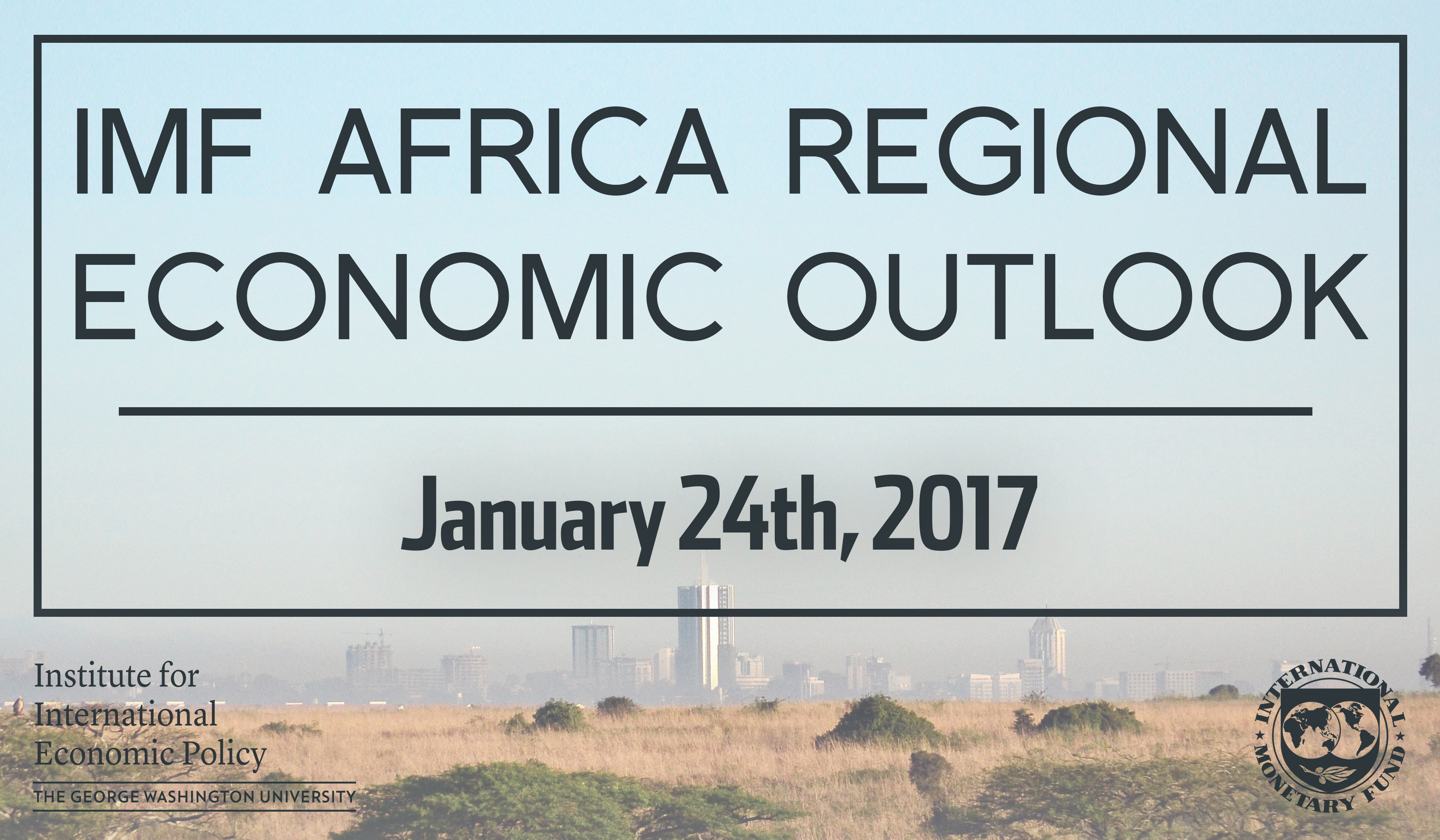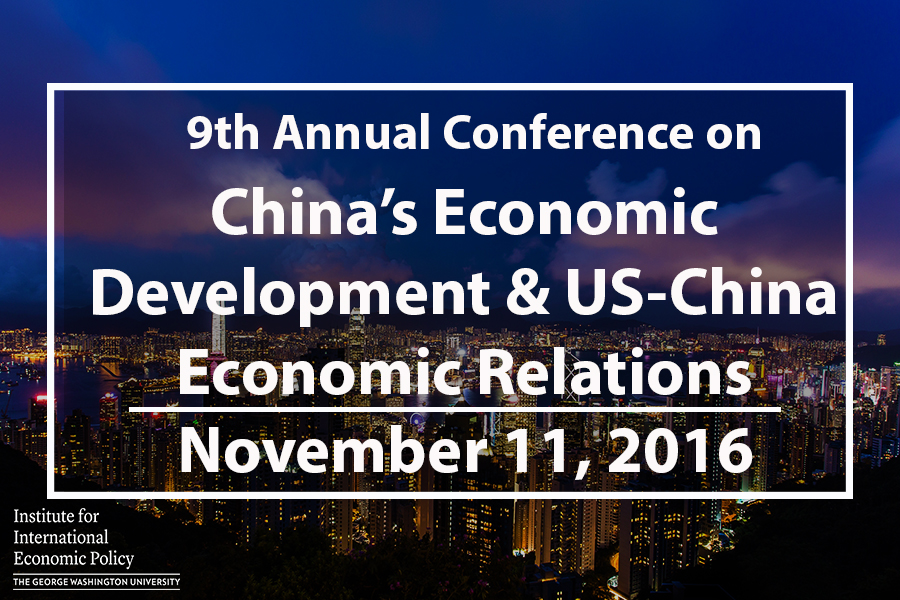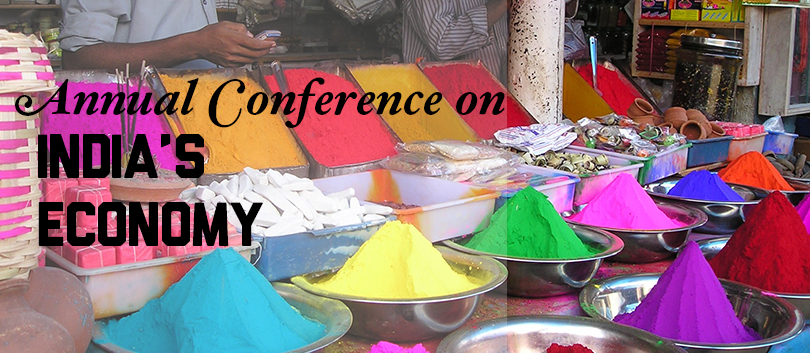Welcome Remarks
 Deborah Wetzel, a U.S. national with more than 25 years of experience in development work around the world, is the World Bank Director for Regional Integration for Africa, the Middle East and Northern Africa. Prior to her current appointment, Wetzel was the Senior Director for Governance from April 2016 to April 2019. She also served as the Director of Strategy and Operations for the Middle East and North Africa Region, as well as Country Director for Brazil, from March 2012 until July 2015. Previous roles include World Bank Group’s Chief of Staff to the World Bank President from 2010 to 2012, and Director for Governance and Public Sector, where she directed the Bank’s work on taxation, public expenditures, decentralization, public sector reform and strengthening, governance and anti-corruption. From 2006 to 2009, she led the World Bank’s Economic and Public Sector Programs in Brazil, based in Brasilia. During that period, she developed numerous programs with state and federal governments to help improve the effectiveness of public expenditures and achieve better results. Wetzel has a Doctorate in Economics from the University of Oxford and a Masters in International Studies from Johns Hopkins University, School of Advanced International Studies. Her BA is from Smith College. She is the author of publications on fiscal decentralization, public finance, governance, and sub-national affairs.
Deborah Wetzel, a U.S. national with more than 25 years of experience in development work around the world, is the World Bank Director for Regional Integration for Africa, the Middle East and Northern Africa. Prior to her current appointment, Wetzel was the Senior Director for Governance from April 2016 to April 2019. She also served as the Director of Strategy and Operations for the Middle East and North Africa Region, as well as Country Director for Brazil, from March 2012 until July 2015. Previous roles include World Bank Group’s Chief of Staff to the World Bank President from 2010 to 2012, and Director for Governance and Public Sector, where she directed the Bank’s work on taxation, public expenditures, decentralization, public sector reform and strengthening, governance and anti-corruption. From 2006 to 2009, she led the World Bank’s Economic and Public Sector Programs in Brazil, based in Brasilia. During that period, she developed numerous programs with state and federal governments to help improve the effectiveness of public expenditures and achieve better results. Wetzel has a Doctorate in Economics from the University of Oxford and a Masters in International Studies from Johns Hopkins University, School of Advanced International Studies. Her BA is from Smith College. She is the author of publications on fiscal decentralization, public finance, governance, and sub-national affairs.
Roundtable
Moderator:
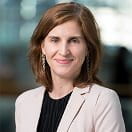 Carolina Sánchez-Páramo, a Spanish national, is currently the Global Director of the Poverty and Equity Global Practice (GP) at the World Bank. Prior to this assignment, she was the Poverty and Equity GP Practice Manager in the Europe and Central Asia region. Carolina has worked on operations, policy advice and analytical activities in Eastern Europe, Latin America and South Asia, and was part of the core team working on the WDR2012, “Gender Equality and Development”. Her main areas of interest and expertise include labor economics, poverty and distributional analysis, gender equality and welfare impacts of public policy. She has led reports on poverty and equity, labor markets and economic growth in several countries, as well as social sector operations. She has published articles in refereed journals and edited books on the topics described above. Carolina has a PhD in Economics from Harvard University.
Carolina Sánchez-Páramo, a Spanish national, is currently the Global Director of the Poverty and Equity Global Practice (GP) at the World Bank. Prior to this assignment, she was the Poverty and Equity GP Practice Manager in the Europe and Central Asia region. Carolina has worked on operations, policy advice and analytical activities in Eastern Europe, Latin America and South Asia, and was part of the core team working on the WDR2012, “Gender Equality and Development”. Her main areas of interest and expertise include labor economics, poverty and distributional analysis, gender equality and welfare impacts of public policy. She has led reports on poverty and equity, labor markets and economic growth in several countries, as well as social sector operations. She has published articles in refereed journals and edited books on the topics described above. Carolina has a PhD in Economics from Harvard University.
Keynote Speakers:
 Chris Blattman is the Ramalee E. Pearson Professor of Global Conflict Studies at The University of Chicago’s Pearson Institute and Harris Public Policy. He is an economist and political scientist who studies poverty, violence and crime in developing countries. He has designed and evaluated strategies for tackling poverty, including cash transfers to the poorest. Much of his work is with the victims and perpetrators of crime and violence, testing the link between poverty and violence. His recent work looks at other sources of and solutions to violence. These solutions range from behavioral therapy to social norm change and local-level state building. He has worked mainly in Colombia, Liberia, Uganda, Ethiopia, and Chicago’s South Side. Dr. Blattman was previously faculty at Columbia and Yale Universities, and holds a PhD in Economics from UC Berkeley and a Master’s in Public Administration and International Development (MPA/ID) from the Harvard Kennedy School. He chairs the Peace & Recovery sector at Innovations for Poverty Action (IPA) and the Crime, Violence and Conflict initiative at MIT’s Poverty Action Lab (JPAL).
Chris Blattman is the Ramalee E. Pearson Professor of Global Conflict Studies at The University of Chicago’s Pearson Institute and Harris Public Policy. He is an economist and political scientist who studies poverty, violence and crime in developing countries. He has designed and evaluated strategies for tackling poverty, including cash transfers to the poorest. Much of his work is with the victims and perpetrators of crime and violence, testing the link between poverty and violence. His recent work looks at other sources of and solutions to violence. These solutions range from behavioral therapy to social norm change and local-level state building. He has worked mainly in Colombia, Liberia, Uganda, Ethiopia, and Chicago’s South Side. Dr. Blattman was previously faculty at Columbia and Yale Universities, and holds a PhD in Economics from UC Berkeley and a Master’s in Public Administration and International Development (MPA/ID) from the Harvard Kennedy School. He chairs the Peace & Recovery sector at Innovations for Poverty Action (IPA) and the Crime, Violence and Conflict initiative at MIT’s Poverty Action Lab (JPAL).
 Dominic Rohner (PhD, University of Cambridge) is a Professor and co-director of the economics department at HEC Lausanne, the Faculty of Business and Economics of the University of Lausanne. He is also Associate Editor at the Economic Journal, the PI of a European Research Council grant, the leader of the CEPR Research and Policy Network on “Policies for Peace”, a member of the Swiss National Research Council, and co-leader of the E4S group on “Evidence-based environmental policies”. Prior to joining UNIL, he held positions at the universities of York and Zurich. His research focuses on political and development economics, has won several prizes and has been widely published in journals such as American Economic Review, Econometrica, Quarterly Journal of Economics, Journal of Political Economy, Review of Economic Studies, and PNAS.
Dominic Rohner (PhD, University of Cambridge) is a Professor and co-director of the economics department at HEC Lausanne, the Faculty of Business and Economics of the University of Lausanne. He is also Associate Editor at the Economic Journal, the PI of a European Research Council grant, the leader of the CEPR Research and Policy Network on “Policies for Peace”, a member of the Swiss National Research Council, and co-leader of the E4S group on “Evidence-based environmental policies”. Prior to joining UNIL, he held positions at the universities of York and Zurich. His research focuses on political and development economics, has won several prizes and has been widely published in journals such as American Economic Review, Econometrica, Quarterly Journal of Economics, Journal of Political Economy, Review of Economic Studies, and PNAS.
Academic Presentations
Speakers:
 Nathan Nunn is Frederic E. Abbe Professor of Economics at Harvard University. Professor Nunn’s primary research interests are in political economy, economic history, economic development, cultural economics, and international trade. He is an NBER Faculty Research Fellow, a Research Fellow at BREAD, a Faculty Associate at Harvard’s Weatherhead Center for International Affairs (WCFIA), and a Fellow of the Canadian Institute for Advanced Research (CIFAR) in the Boundaries, Membership & Belonging program. One stream of Professor Nunn’s research focuses on the historical and dynamic process of economic development. In particular, he has studied the factors that shape differences in the evolution of institutions and cultures across societies. He has published research that studies the historical process of a wide range of factors that are crucial for economic development, including distrust, gender norms, religiosity, norms of rule-following, conflict, immigration, state formation, and support for democracy. His current research interests lie in better understanding the importance of local culture and context for economic policies, particularly in developing countries.
Nathan Nunn is Frederic E. Abbe Professor of Economics at Harvard University. Professor Nunn’s primary research interests are in political economy, economic history, economic development, cultural economics, and international trade. He is an NBER Faculty Research Fellow, a Research Fellow at BREAD, a Faculty Associate at Harvard’s Weatherhead Center for International Affairs (WCFIA), and a Fellow of the Canadian Institute for Advanced Research (CIFAR) in the Boundaries, Membership & Belonging program. One stream of Professor Nunn’s research focuses on the historical and dynamic process of economic development. In particular, he has studied the factors that shape differences in the evolution of institutions and cultures across societies. He has published research that studies the historical process of a wide range of factors that are crucial for economic development, including distrust, gender norms, religiosity, norms of rule-following, conflict, immigration, state formation, and support for democracy. His current research interests lie in better understanding the importance of local culture and context for economic policies, particularly in developing countries.
 Rémi Jedwab is an associate professor of Economics and International Affairs at the Elliott School and the Department of Economics of George Washington University and an Affiliated Scholar of the Marron Institute of Urban Management at New York University. Professor Jedwab’s main fields of research are development and growth, urban economics, labor economics and political economy. Some of the issues he has studied include urbanization and structural transformation, the relationship between population growth and economic growth, the economic effects of transportation infrastructure, and the roles of institutions, human capital and technology in development. He is the co-founder and co-organizer of the World Bank-GWU Urbanization and Poverty Reduction Conference and the Washington Area Development Economics Symposium. His research has been published in the American Economic Review, the Review of Economics and Statistics, the Economic Journal, and the Journal of Urban Economics. Finally, he is an Associate Editor at the Journal of Urban Economics and Regional Science and Urban Economics.
Rémi Jedwab is an associate professor of Economics and International Affairs at the Elliott School and the Department of Economics of George Washington University and an Affiliated Scholar of the Marron Institute of Urban Management at New York University. Professor Jedwab’s main fields of research are development and growth, urban economics, labor economics and political economy. Some of the issues he has studied include urbanization and structural transformation, the relationship between population growth and economic growth, the economic effects of transportation infrastructure, and the roles of institutions, human capital and technology in development. He is the co-founder and co-organizer of the World Bank-GWU Urbanization and Poverty Reduction Conference and the Washington Area Development Economics Symposium. His research has been published in the American Economic Review, the Review of Economics and Statistics, the Economic Journal, and the Journal of Urban Economics. Finally, he is an Associate Editor at the Journal of Urban Economics and Regional Science and Urban Economics.
 Maria Micaela Sviatschi is currently an Assistant Professor of Economics and Public Affairs at Princeton University. She is also an affiliate at the CESifo Research Network, NBER development and political economy group, the African School of Economics and the International Crisis Group. Her research interests are labor and development economics, with a focus on human capital, gender-violence and crime. One strand of her research explores how children start a criminal career in drug trafficking and gangs as well as the consequences of organized crime on economic development and state capacity. In particular, she has worked on the development of criminal skills in drug trafficking organizations in Peru and gangs in El Salvador. In addition, she studies how criminal organizations such as gangs and drug trafficking groups affect household’s behavior and state presence in the areas they control. Another strand of her research studies the role of state capacity to deter and improve service-delivery to reduce gender-based violence. In particular, studying the effects of women police officers in Peru and police street patrolling in India. In addition to this research, she has ongoing collaborative research projects in the Dominican Republic, Guatemala, Colombia, Mozambique, Jordan, Bangladesh and the US.
Maria Micaela Sviatschi is currently an Assistant Professor of Economics and Public Affairs at Princeton University. She is also an affiliate at the CESifo Research Network, NBER development and political economy group, the African School of Economics and the International Crisis Group. Her research interests are labor and development economics, with a focus on human capital, gender-violence and crime. One strand of her research explores how children start a criminal career in drug trafficking and gangs as well as the consequences of organized crime on economic development and state capacity. In particular, she has worked on the development of criminal skills in drug trafficking organizations in Peru and gangs in El Salvador. In addition, she studies how criminal organizations such as gangs and drug trafficking groups affect household’s behavior and state presence in the areas they control. Another strand of her research studies the role of state capacity to deter and improve service-delivery to reduce gender-based violence. In particular, studying the effects of women police officers in Peru and police street patrolling in India. In addition to this research, she has ongoing collaborative research projects in the Dominican Republic, Guatemala, Colombia, Mozambique, Jordan, Bangladesh and the US.
 Mathias Thoenig is a Professor of Economics at the School of Business and Economics (HEC) at the University of Lausanne, a CEPR Research Fellow in the international trade and macro programs and an elected Council Member of the European Economic Association. He is a Distinguished Scholar at IMD Business School and a Professorial Fellow at Queen Mary University of London. Mathias Thoenig received his Ph.D. from University Paris-1 Sorbonne and his B.A. in engineering from Ecole Polytechnique. He has held visiting appointments at International Monetary Fund, MIT, SciencesPo Paris, University of British Columbia and University Pompeu Fabra. He also served on the editorial boards of Journal of European Economic Association and International Economics. His research interests include development, international trade and political economy of conflicts and migration. He has published and forthcoming papers in several international journals, including, among others: American Economic Review, Econometrica, Quarterly Journal of Economics, Review of Economic Studies, Harvard Business Review, Journal of European Economic Association. He has been awarded an ERC Starting Grant in 2013 for his work on the role of distrust and grievances in ethnic conflicts.
Mathias Thoenig is a Professor of Economics at the School of Business and Economics (HEC) at the University of Lausanne, a CEPR Research Fellow in the international trade and macro programs and an elected Council Member of the European Economic Association. He is a Distinguished Scholar at IMD Business School and a Professorial Fellow at Queen Mary University of London. Mathias Thoenig received his Ph.D. from University Paris-1 Sorbonne and his B.A. in engineering from Ecole Polytechnique. He has held visiting appointments at International Monetary Fund, MIT, SciencesPo Paris, University of British Columbia and University Pompeu Fabra. He also served on the editorial boards of Journal of European Economic Association and International Economics. His research interests include development, international trade and political economy of conflicts and migration. He has published and forthcoming papers in several international journals, including, among others: American Economic Review, Econometrica, Quarterly Journal of Economics, Review of Economic Studies, Harvard Business Review, Journal of European Economic Association. He has been awarded an ERC Starting Grant in 2013 for his work on the role of distrust and grievances in ethnic conflicts.
Discussants:
 Roland Hodler is Professor of Economics at the University of St.Gallen and Research Fellow at CEPR, CESifo and OxCarre. His research covers topics in development and political economics. His interests include how ethnic diversity, natural resources and foreign aid influence economic and human development as well as conflict, corruption and favoritism. His research has been published in the Quarterly Journal of Economics, the American Economic Journal: Economic Policy, the Journal of Development Economics, the Journal of Public Economics, and the Proceedings of the National Academy of Sciences; and covered by the BBC, the Economist, the Guardian, Le Monde, NZZ, and the Washington Post. He is also a member of the Bayelsa State Oil & Environmental Commission.
Roland Hodler is Professor of Economics at the University of St.Gallen and Research Fellow at CEPR, CESifo and OxCarre. His research covers topics in development and political economics. His interests include how ethnic diversity, natural resources and foreign aid influence economic and human development as well as conflict, corruption and favoritism. His research has been published in the Quarterly Journal of Economics, the American Economic Journal: Economic Policy, the Journal of Development Economics, the Journal of Public Economics, and the Proceedings of the National Academy of Sciences; and covered by the BBC, the Economist, the Guardian, Le Monde, NZZ, and the Washington Post. He is also a member of the Bayelsa State Oil & Environmental Commission.
 Mathieu Couttenier has obtained his PhD in Economics in 2011 at the University Paris 1 Sorbonne, Paris School of Economics. Before to join the Ecole Normale Superieure de Lyon as Professor, he was post-doc at the University of Lausanne and assistant professor at the University of Geneva. He was also visiting researcher at the department of political sciences at Stanford and at the economic department at Sciences Po Paris. His research is filled with interactions between economics and political sciences but also cultural, institutional and geographical issues. He focuses on microeconomic questions, in particular in the fields of applied political economy and economic development. His main research interests are in the understanding of violence and civil wars. He has published many academic papers on the role played by income shocks, natural resources or climate on the diffusion of conflicts over space and time. Some of his present research agenda also studies the role of natural resources in the local economic development. He has published in many leading peer-refereed journals, such as the American Economic Review, the Journal of the European Economic Association, the Economic Journal, the Review of Economics and Statistics, the Journal of Development Economics and the Journal of Comparative Economics.
Mathieu Couttenier has obtained his PhD in Economics in 2011 at the University Paris 1 Sorbonne, Paris School of Economics. Before to join the Ecole Normale Superieure de Lyon as Professor, he was post-doc at the University of Lausanne and assistant professor at the University of Geneva. He was also visiting researcher at the department of political sciences at Stanford and at the economic department at Sciences Po Paris. His research is filled with interactions between economics and political sciences but also cultural, institutional and geographical issues. He focuses on microeconomic questions, in particular in the fields of applied political economy and economic development. His main research interests are in the understanding of violence and civil wars. He has published many academic papers on the role played by income shocks, natural resources or climate on the diffusion of conflicts over space and time. Some of his present research agenda also studies the role of natural resources in the local economic development. He has published in many leading peer-refereed journals, such as the American Economic Review, the Journal of the European Economic Association, the Economic Journal, the Review of Economics and Statistics, the Journal of Development Economics and the Journal of Comparative Economics.
 Elena Esposito is Assistant Professor at HEC Lausanne, University of Lausanne. She is an applied economist with research interests in the fields of development economics, economic growth, political economy, and economic history. Elena Esposito earned a Ph.D. in Economics from the University of Bologna in 2014 and she joined the department of Economics at the European University Institute (Italy) as “Max Weber Fellow”. She spent research periods at the departments of economics at universities in the USA. She also worked as an economic researcher and consultant for several international organizations, participating to projects with UNICEF, the European Commission and the World Bank, among others.
Elena Esposito is Assistant Professor at HEC Lausanne, University of Lausanne. She is an applied economist with research interests in the fields of development economics, economic growth, political economy, and economic history. Elena Esposito earned a Ph.D. in Economics from the University of Bologna in 2014 and she joined the department of Economics at the European University Institute (Italy) as “Max Weber Fellow”. She spent research periods at the departments of economics at universities in the USA. She also worked as an economic researcher and consultant for several international organizations, participating to projects with UNICEF, the European Commission and the World Bank, among others.
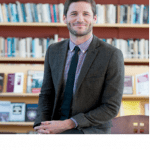 Eoin McGuirk is an Assistant Professor of Economics and Neubauer Faculty Fellow at Tufts University. His research interests are in development and political economics, with a particular focus on the causes and consequences of political violence and social divisions. In his research, he has examined how variation in world food prices can affect the type and location of conflict events in Africa, and how politicians are more likely to perpetuate conflict when they are sheltered from its costs. Most of his research employs natural experiments in order to identify causal relationships. He has Ph.D. in Economics from Trinity College, University of Dublin, and was a Fulbright Scholar at the University of California, Berkeley.
Eoin McGuirk is an Assistant Professor of Economics and Neubauer Faculty Fellow at Tufts University. His research interests are in development and political economics, with a particular focus on the causes and consequences of political violence and social divisions. In his research, he has examined how variation in world food prices can affect the type and location of conflict events in Africa, and how politicians are more likely to perpetuate conflict when they are sheltered from its costs. Most of his research employs natural experiments in order to identify causal relationships. He has Ph.D. in Economics from Trinity College, University of Dublin, and was a Fulbright Scholar at the University of California, Berkeley.

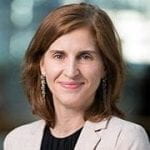










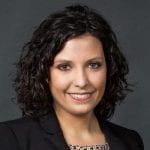





 Nathan Nunn is Frederic E. Abbe Professor of Economics at Harvard University. Professor Nunn’s primary research interests are in political economy, economic history, economic development, cultural economics, and international trade. He is an NBER Faculty Research Fellow, a Research Fellow at BREAD, a Faculty Associate at Harvard’s Weatherhead Center for International Affairs (WCFIA), and a Fellow of the Canadian Institute for Advanced Research (CIFAR) in the Boundaries, Membership & Belonging program. One stream of Professor Nunn’s research focuses on the historical and dynamic process of economic development. In particular, he has studied the factors that shape differences in the evolution of institutions and cultures across societies. He has published research that studies the historical process of a wide range of factors that are crucial for economic development, including distrust, gender norms, religiosity, norms of rule-following, conflict, immigration, state formation, and support for democracy. His current research interests lie in better understanding the importance of local culture and context for economic policies, particularly in developing countries.
Nathan Nunn is Frederic E. Abbe Professor of Economics at Harvard University. Professor Nunn’s primary research interests are in political economy, economic history, economic development, cultural economics, and international trade. He is an NBER Faculty Research Fellow, a Research Fellow at BREAD, a Faculty Associate at Harvard’s Weatherhead Center for International Affairs (WCFIA), and a Fellow of the Canadian Institute for Advanced Research (CIFAR) in the Boundaries, Membership & Belonging program. One stream of Professor Nunn’s research focuses on the historical and dynamic process of economic development. In particular, he has studied the factors that shape differences in the evolution of institutions and cultures across societies. He has published research that studies the historical process of a wide range of factors that are crucial for economic development, including distrust, gender norms, religiosity, norms of rule-following, conflict, immigration, state formation, and support for democracy. His current research interests lie in better understanding the importance of local culture and context for economic policies, particularly in developing countries. Rémi Jedwab is an associate professor of Economics and International Affairs at the Elliott School and the Department of Economics of George Washington University and an Affiliated Scholar of the Marron Institute of Urban Management at New York University. Professor Jedwab’s main fields of research are development and growth, urban economics, labor economics and political economy. Some of the issues he has studied include urbanization and structural transformation, the relationship between population growth and economic growth, the economic effects of transportation infrastructure, and the roles of institutions, human capital and technology in development. He is the co-founder and co-organizer of the World Bank-GWU Urbanization and Poverty Reduction Conference and the Washington Area Development Economics Symposium. His research has been published in the American Economic Review, the Review of Economics and Statistics, the Economic Journal, and the Journal of Urban Economics. Finally, he is an Associate Editor at the Journal of Urban Economics and Regional Science and Urban Economics.
Rémi Jedwab is an associate professor of Economics and International Affairs at the Elliott School and the Department of Economics of George Washington University and an Affiliated Scholar of the Marron Institute of Urban Management at New York University. Professor Jedwab’s main fields of research are development and growth, urban economics, labor economics and political economy. Some of the issues he has studied include urbanization and structural transformation, the relationship between population growth and economic growth, the economic effects of transportation infrastructure, and the roles of institutions, human capital and technology in development. He is the co-founder and co-organizer of the World Bank-GWU Urbanization and Poverty Reduction Conference and the Washington Area Development Economics Symposium. His research has been published in the American Economic Review, the Review of Economics and Statistics, the Economic Journal, and the Journal of Urban Economics. Finally, he is an Associate Editor at the Journal of Urban Economics and Regional Science and Urban Economics.
 Mathias Thoenig is a Professor of Economics at the School of Business and Economics (HEC) at the University of Lausanne, a CEPR Research Fellow in the international trade and macro programs and an elected Council Member of the European Economic Association. He is a Distinguished Scholar at IMD Business School and a Professorial Fellow at Queen Mary University of London. Mathias Thoenig received his Ph.D. from University Paris-1 Sorbonne and his B.A. in engineering from Ecole Polytechnique. He has held visiting appointments at International Monetary Fund, MIT, SciencesPo Paris, University of British Columbia and University Pompeu Fabra. He also served on the editorial boards of Journal of European Economic Association and International Economics. His research interests include development, international trade and political economy of conflicts and migration. He has published and forthcoming papers in several international journals, including, among others: American Economic Review, Econometrica, Quarterly Journal of Economics, Review of Economic Studies, Harvard Business Review, Journal of European Economic Association. He has been awarded an ERC Starting Grant in 2013 for his work on the role of distrust and grievances in ethnic conflicts.
Mathias Thoenig is a Professor of Economics at the School of Business and Economics (HEC) at the University of Lausanne, a CEPR Research Fellow in the international trade and macro programs and an elected Council Member of the European Economic Association. He is a Distinguished Scholar at IMD Business School and a Professorial Fellow at Queen Mary University of London. Mathias Thoenig received his Ph.D. from University Paris-1 Sorbonne and his B.A. in engineering from Ecole Polytechnique. He has held visiting appointments at International Monetary Fund, MIT, SciencesPo Paris, University of British Columbia and University Pompeu Fabra. He also served on the editorial boards of Journal of European Economic Association and International Economics. His research interests include development, international trade and political economy of conflicts and migration. He has published and forthcoming papers in several international journals, including, among others: American Economic Review, Econometrica, Quarterly Journal of Economics, Review of Economic Studies, Harvard Business Review, Journal of European Economic Association. He has been awarded an ERC Starting Grant in 2013 for his work on the role of distrust and grievances in ethnic conflicts.
 Mathieu Couttenier has obtained his PhD in Economics in 2011 at the University Paris 1 Sorbonne, Paris School of Economics. Before to join the Ecole Normale Superieure de Lyon as Professor, he was post-doc at the University of Lausanne and assistant professor at the University of Geneva. He was also visiting researcher at the department of political sciences at Stanford and at the economic department at Sciences Po Paris. His research is filled with interactions between economics and political sciences but also cultural, institutional and geographical issues. He focuses on microeconomic questions, in particular in the fields of applied political economy and economic development. His main research interests are in the understanding of violence and civil wars. He has published many academic papers on the role played by income shocks, natural resources or climate on the diffusion of conflicts over space and time. Some of his present research agenda also studies the role of natural resources in the local economic development. He has published in many leading peer-refereed journals, such as the American Economic Review, the Journal of the European Economic Association, the Economic Journal, the Review of Economics and Statistics, the Journal of Development Economics and the Journal of Comparative Economics.
Mathieu Couttenier has obtained his PhD in Economics in 2011 at the University Paris 1 Sorbonne, Paris School of Economics. Before to join the Ecole Normale Superieure de Lyon as Professor, he was post-doc at the University of Lausanne and assistant professor at the University of Geneva. He was also visiting researcher at the department of political sciences at Stanford and at the economic department at Sciences Po Paris. His research is filled with interactions between economics and political sciences but also cultural, institutional and geographical issues. He focuses on microeconomic questions, in particular in the fields of applied political economy and economic development. His main research interests are in the understanding of violence and civil wars. He has published many academic papers on the role played by income shocks, natural resources or climate on the diffusion of conflicts over space and time. Some of his present research agenda also studies the role of natural resources in the local economic development. He has published in many leading peer-refereed journals, such as the American Economic Review, the Journal of the European Economic Association, the Economic Journal, the Review of Economics and Statistics, the Journal of Development Economics and the Journal of Comparative Economics. Elena Esposito is Assistant Professor at HEC Lausanne, University of Lausanne. She is an applied economist with research interests in the fields of development economics, economic growth, political economy, and economic history. Elena Esposito earned a Ph.D. in Economics from the University of Bologna in 2014 and she joined the department of Economics at the European University Institute (Italy) as “Max Weber Fellow”. She spent research periods at the departments of economics at universities in the USA. She also worked as an economic researcher and consultant for several international organizations, participating to projects with UNICEF, the European Commission and the World Bank, among others.
Elena Esposito is Assistant Professor at HEC Lausanne, University of Lausanne. She is an applied economist with research interests in the fields of development economics, economic growth, political economy, and economic history. Elena Esposito earned a Ph.D. in Economics from the University of Bologna in 2014 and she joined the department of Economics at the European University Institute (Italy) as “Max Weber Fellow”. She spent research periods at the departments of economics at universities in the USA. She also worked as an economic researcher and consultant for several international organizations, participating to projects with UNICEF, the European Commission and the World Bank, among others. Eoin McGuirk is an Assistant Professor of Economics and Neubauer Faculty Fellow at Tufts University. His research interests are in development and political economics, with a particular focus on the causes and consequences of political violence and social divisions. In his research, he has examined how variation in world food prices can affect the type and location of conflict events in Africa, and how politicians are more likely to perpetuate conflict when they are sheltered from its costs. Most of his research employs natural experiments in order to identify causal relationships. He has Ph.D. in Economics from Trinity College, University of Dublin, and was a Fulbright Scholar at the University of California, Berkeley.
Eoin McGuirk is an Assistant Professor of Economics and Neubauer Faculty Fellow at Tufts University. His research interests are in development and political economics, with a particular focus on the causes and consequences of political violence and social divisions. In his research, he has examined how variation in world food prices can affect the type and location of conflict events in Africa, and how politicians are more likely to perpetuate conflict when they are sheltered from its costs. Most of his research employs natural experiments in order to identify causal relationships. He has Ph.D. in Economics from Trinity College, University of Dublin, and was a Fulbright Scholar at the University of California, Berkeley.


